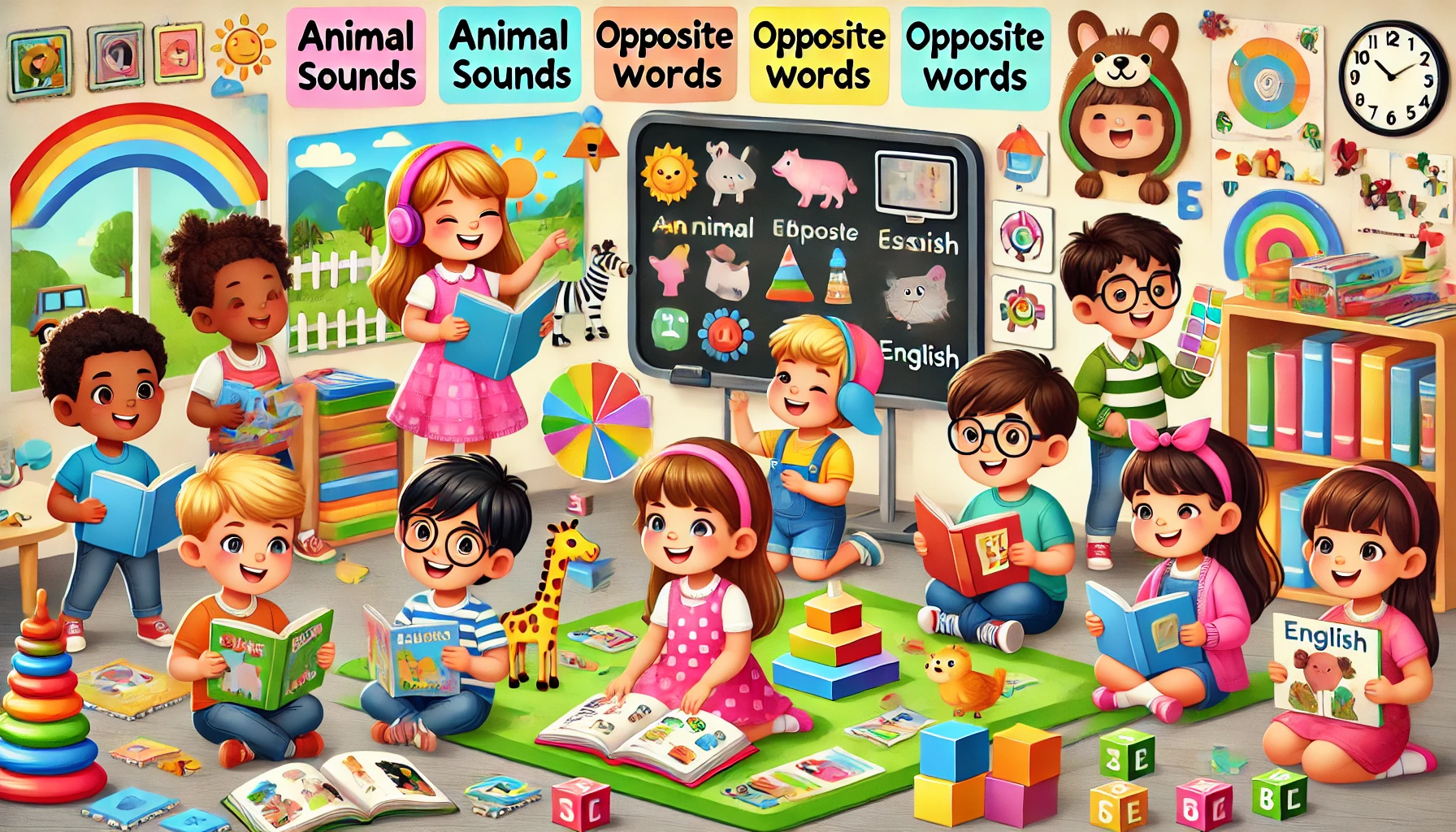Top Educational Activities for Kids: Opposites, Sounds, and Good Habits
FAQs on Fun Educational Topics for Kids: Explore, Learn, and Play
1. What are some fun and effective learning activities for young children?
Fun learning activities are crucial for making education engaging for kids. They blend play with learning to develop key skills. Some popular examples include:
- Storytelling and Rhymes: These enhance language, listening skills, and imagination.
- Puzzles and Building Blocks: They improve problem-solving, fine motor skills, and spatial awareness.
- Arts and Crafts: Activities like drawing, painting, and clay modelling foster creativity and self-expression.
- Educational Games: Games like 'I Spy' for vocabulary or number bingo for maths make learning interactive. Vedantu offers various learning activities for kids to support this playful approach to education.
2. What are the key educational topics suitable for early learners in preschool or kindergarten?
For early learners, educational topics should focus on building foundational knowledge. The core areas as per the CBSE syllabus for early years include:
- Basic Literacy: Recognising letters of the alphabet, phonics sounds, and simple sight words.
- Basic Numeracy: Counting numbers, identifying shapes, and understanding simple concepts like big/small.
- Environmental Science (EVS): Learning about myself, family, animals, plants, and community helpers.
- General Awareness: Topics like colours, fruits, vegetables, and good habits. These topics are covered in detail in the CBSE UKG Syllabus to ensure a strong start.
3. How do hands-on activities help in teaching basic Maths concepts to kids?
Hands-on activities are highly effective for teaching abstract maths concepts in a concrete way. For example, using beads or blocks for counting and simple addition helps children visualise the process. Sorting objects by shape or colour teaches classification. Activities like measuring ingredients while cooking introduce concepts of measurement and fractions. These practical tasks make maths less intimidating and more relatable, as seen in the activity-based CBSE Class 1 Maths resources.
4. What are some easy and kid-friendly topics for a presentation or 'show and tell' activity?
Good topics for a kid's presentation should be relatable and based on their personal experiences. This boosts their confidence and public speaking skills. Excellent choices include:
- My Favourite Toy: Allows them to talk about something they know and love.
- My Pet or Favourite Animal: Encourages them to share facts and stories.
- My Family: A simple topic that helps them describe people they are close to.
- A Book I Enjoyed: Promotes reading and comprehension skills.
5. Why is it important to use activities and games for teaching kids instead of only relying on books?
While books are essential, relying solely on them can make learning passive. Using a mix of activities and games is important because it addresses different learning styles. Games make learning active, improve retention, and teach critical thinking and social skills like teamwork and turn-taking. For instance, a game on body parts is often more memorable for a young child than just reading a chart. This approach fosters a positive and joyful attitude towards education from an early age.
6. How can parents easily incorporate learning into everyday routines at home?
Integrating learning into daily life is a powerful way to reinforce concepts naturally. Parents can:
- During Grocery Shopping: Ask kids to find items, count them, or identify colours and shapes on packaging.
- In the Kitchen: Let them help with simple tasks like measuring flour or counting eggs, introducing basic maths.
- During a Walk: Point out different types of plants, animals, or vehicles to build vocabulary and observational skills.
- At Bedtime: Read a story together to enhance language and comprehension.
7. What is the role of worksheets in a child's learning journey?
Worksheets play a specific and valuable role in learning. They are excellent tools for reinforcing and practising concepts that have already been taught. A well-designed worksheet can help assess a child's understanding of a topic, improve their writing and fine motor skills, and provide a structured way to practice. For example, after learning about numbers, a Maths worksheet can provide the necessary repetition to master counting and writing them. They are most effective when used in balance with hands-on activities and games.
8. What is the difference between an educational topic and a learning activity?
An educational topic is the 'what' of learning—it's the subject or concept being taught, such as 'Addition', 'The Solar System', or 'Nouns'. A learning activity is the 'how'—it's the method or task used to teach that topic. For example, to teach the topic of 'Animals', a learning activity could be visiting a zoo, drawing animals, or playing a game with animal sounds. The activity brings the topic to life and makes the learning process engaging and effective.
9. What are some educational topics that help develop good habits and values in children?
Teaching good habits and values is a crucial part of a child's education. Key topics that help build character include:
- Sharing and Caring: Taught through group activities and stories about friendship.
- Honesty and Respect: Role-playing scenarios and discussing the importance of telling the truth.
- Cleanliness and Hygiene: Activities that teach the importance of washing hands, brushing teeth, and keeping surroundings clean.
- Kindness to Animals and Nature: Topics that encourage empathy and responsibility towards the environment. These good habits for kids are foundational for their social and emotional development.






















